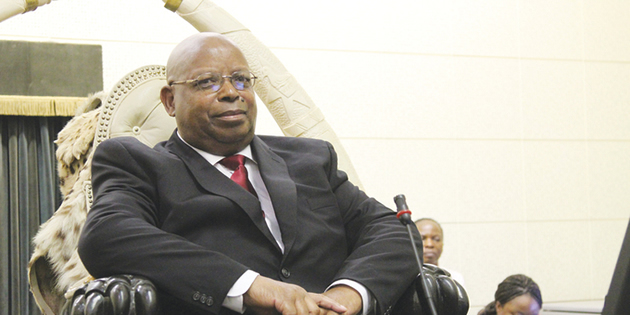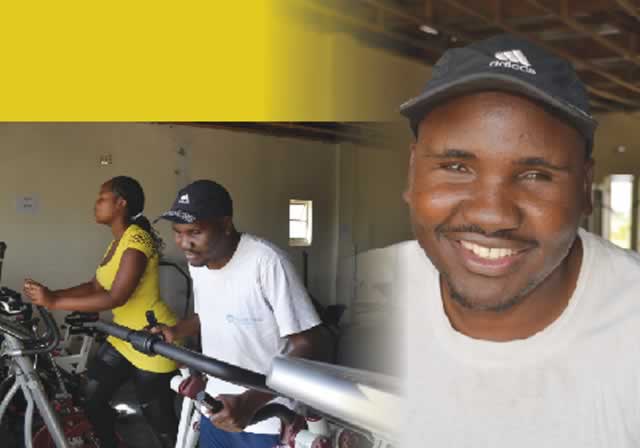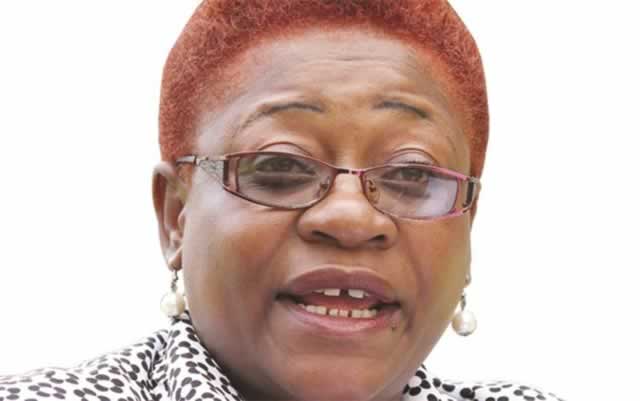Good governance should be our motto – Mudenda


ADVOCATE JACOB MUDENDA . . . “We need a public service and a private sector that is results management-based with minimum instances of corruption”
Lloyd Gumbo THE INTERVIEW
Ministers, Members of Parliament and other senior Government officials thronged Victoria Falls from October 30 to November 3 for the pre-Budget seminar to deliberate on the 2016 National Budget. The seminar was held under the theme “Growing the national cake for national socio-economic development”. Instead of presenting budgetary expectations of their line ministries, MPs were asked to proffer solutions on how to grow the national cake. Our senior reporter, Lloyd Gumbo (LG) was in Victoria Falls and caught up with National Assembly Speaker Advocate Jacob Mudenda (JM) after the seminar, to talk about this and other issues.
LG: There has been a paradigm shift in terms of how Parliament approached the pre-Budget seminar this year, focusing more on solutions than questions. What inspired the shift?
JM: It’s a question of trying to effect a balance of effectiveness vis-à-vis business as usual. To that extent, we had a budget briefing seminar in Harare to demonstrate to Members of Parliament how they would maximise the implementation of the outcome of the public hearing from the people about the Budget.
We then had a demonstration on how that presentation should be made by members of the portfolio committees as led by their chairpersons. Demonstrations were done and we tried to make remedial suggestions on how best to present their findings effectively – their findings which will take into account what the line ministries would want to see in the Budget.
Then we had a second-tier of the Budget preparatory briefings with the chairpersons of parliamentary committees. During that briefing we were now focusing on economic literacy, the language which couches the Budget because it is all about finance and economics.
And we looked at the issues of what we mean by GDP, Government policy, Zim-Asset as the economic blueprint and how that relates to the Budget.
And with that knowledge, how can we employ that understanding to improve the presentation of what the committees had gathered from the people.
Then we came over here now for the practical application of those two sessions that we held in Harare.
LG: Looking at the consultations, there is general concern among Zimbabweans that parliamentary committees do consultations and recommend but Treasury never takes their recommendations on board.
JM: We have moved one gear up as you have noticed. The presentations by committees were solutions-based. Instead of asking questions or reporting what the people had said during the public hearings, you convert what they said, and as a committee suggest solutions to grow the cake in the Budget so that the priorities identified by them can as much as possible be met.
I think that was a distinct departure from what we have been doing all along.
LG: But for the cake to grow, there are ingredients that one has to get right. Do you think the seminar has done that?
JM: If you read my introductory remarks, one of the key drivers in growing the cake is the management of that cake. You can have a cake and slice it into two big pieces and only feed two people but if you exercise economy in the distribution of that cake, you will then spread the number of beneficiaries.
That is why I mentioned, we need a public service and a private sector that is results management-based with minimum instances of corruption.
And corruption is not stealing of money only but includes indolence, where people do not give their best to see things happening.
And also the question of inertia. If you don’t apply yourself and yet you get salaries at the end of the month, you are earning your salaries unduly and that is an element of corruption.
LG: Speaking about Government parastatals and enterprises that you have just alluded to, not all of them have contributed significantly to the GDP…
JM: But you heard what the seminar said. The seminar said, (1) There are parastatals without boards being appointed. (2) Where these boards have been appointed they did not ensure accountability in making sure that the management was performing according to expectation and examples were given including Hwange Colliery Company.
So there is a shift in terms of emphasis. The quality, of course, of the boards who can exercise insight into the issues that are affecting the parastatals and proffer ideas for improvement in terms of the performance of the parastatals concerned.
LG: In terms of Parliament’s oversight role on parastatals and Government enterprises, do you think the Legislature has enough capacity or support from the Executive?
JM: Any institution in the world, including our own Parliament and other parliaments in the world, resources will never be sufficient. There are always inadequacies here and there but with whatever we get, we must exercise economy.
You have heard the Clerk (of Parliament) indicating that we have gone out to look for development partners to fill up the gaps and the response has been quite positive. Without the support of the development partners, we would not have conducted capacity development programmes for MPs and staff. We would not have conducted the public hearings which we have carried out during the year. So the resources that we get are adequate insofar as we compare ourselves with the demands on the fiscus from the various sectors in the Government.
LG: Then there is the issue of policy inconsistency in Government where you have ministers making contradictory statements…
JM: Some ministers, not every minister has been doing that. Yes, that has been raised and if you recall, again from my introductory remarks, I said for creating the ease of doing business in Zimbabwe, not only do we need political stability, or need the peace dividend, we also need a legal framework that is friendly and attractive to investment by domestic investors as well as foreign direct investors.
This is why you heard from the presentation by the Minister of State in Vice President Mnangangwa’s Office, Minister Clifford Sibanda, giving you the number of pieces of legislation that are being looked at and some that must be aligned to the new Constitution. That is a sign of positive direction by the line ministries as co-ordinated by the Ministry of Justice as far as the legal framework is concerned.
LG: And going forward, what are some of the critical issues that you think Treasury has to take from the seminar to ensure that there is economic turnaround and sustainable development?
JM: Well, the recommendations I think, were loud and clear. Savings were suggested.
You heard the question of bringing into Parliament the Exploration Bill so that we are able to know the worth of our mineral resources under the ground, so that we may sell some of these concession areas and raise funds towards our Sovereign Development Fund.
I thought these were positive suggestions by the various portfolio committees and also the issue of making our embassies proactive in terms of promoting trade and tourism to grow the cake in that regard. And I think the Ministry of Foreign Affairs will act accordingly in terms of revitalising the role of our embassies abroad.
LG: Corporate governance is one of the key issues that was raised here. Parliament has made noise about poor corporate governance, corruption, etc, but there seem to be no action from the other arms of the State. What could be the reason?
JM: Firstly, Parliament has not made noise; Parliament has made suggestions which I believe are very positive. One of the suggestions is that the Zimbabwe Anti-Corruption Commission must be replaced and it should be well resourced because it will be a strong arm of accountability for the State.
We have also indicated that the National Code of Conduct and Ethics for Corporate Governance be translated into law.
This will bolster the provisions of Chapter 9 of our Constitution on leadership and governance if we have that enabling Act that will assist to strengthen corporate governance both in the public sector and the private sector.
But also, apart from the law, we need what I may call moral rearmament. As a people, we must have a sense of conscience and shame when we are tempted to behave in a manner that is contrary to the good ethics of governance both in Government and in the private sector.
We should fight corruption, minimise it and continue to soldier on and improve our sense of accountability in corporate governance.
LG: But Mr Speaker Sir, the Anti-Corruption Commission has been there for a very long time. There have been rare cases where they have brought alleged culprits to book. As a result, Zimbabweans may justifiably lose faith in the Anti-Corruption Commission. We also have other arms of the State who are supposed to act on these cases but are not…
JM: It depends which Anti-Corruption Commission you are talking about. You are talking of the Anti-Corruption Commission of the Seventh Parliament? We are in the Eighth Parliament. The selection of the members of the Anti-Corruption Commission was done through a public-driven process whereby the public was asked to give the people to be selected and recommended for appointment to the Anti-Corruption Commission.
Parliament through the Committee on Standing Rules and Orders conducted these hearings in Parliament and in public. So, we recommended 12 names after vigorous interviews to His Excellency, the President. He also must go through the process of finding who is who in terms of integrity and so on using his own systems to finally help him to come up with nine names of the commission. So we are hoping that when this commission is in place, it will work as an independent constitutional commission.
LG: Some people may think the commission may not be given the independence that you are talking about.
JM: That’s a perception, would you want me to comment on a perception? No I wouldn’t, I want facts.
LG: But would you say there is political will from Government. Will they allow the committee to exercise its mandate without interference?
JM: When you deal with corruption, it is not the Government only; it is the public as well, civil society. When you give a bribe, the one who gives and the one who receives are equally guilty of corruption. So it is a combined effort. If the one who is being given refuses, then corruption has not taken place. So, it is a joint process of fighting corruption which must involve everybody and those that come to the knowledge of certain corrupt practices are free to come forward.
They can go to the police, to the commission and we then see if the commission and the police will not take action at all.
LG: The Auditor-General’s Office has been presenting audit reports before Parliament and issues of corporate governance, mismanagement of funds have been raised in those reports. What is Parliament expected to do to ensure that the culprits and those who have been involved in those corrupt activities are brought to book?
JM: Let me put it this way. First, Parliament has not been very robust in debating the Auditor-General’s reports. That’s a weak area that we need to really strive hard to interrogate the reports through the designated various parliamentary portfolio committees and let them then call to book the line ministries concerned or the people mentioned in the Auditor-General’s report. I think we need to do more in that regard so that the auditor’s reports find meaning in terms of taking remedial action by Parliament working together with the Executive.
LG: Besides summoning the people or offices you mentioned, what other role can Parliament play to bring culprits to book?
JM: We make public hearings. Once we have conducted the public hearings, the parliamentary committee concerned will then produce a report with recommendations that have got timelines for response. But if a matter has already been reported to the police or to the Executive, and the Executive is already taking action on the issue, then Parliament must respect the doctrine of separation of powers. We cannot intervene, once the other arm of Government has taken action.
Furthermore, if the matter is before the courts, Parliament cannot go to the Judiciary and say: “How far have you gone with this matter?” The due process of the Judiciary must be allowed to take its cause. We do not interfere. May I also mention that where civil society has got some observations about certain corrupt tendencies, they can petition Parliament if they have not been satisfied about the responses from the police and so on.
But, we want evidence to show that indeed they have taken action to the police and they have not exercised due diligence. Then Parliament through the relevant portfolio committee will call the minister and say “Minister are you aware of this?” and we hope the minister will take remedial action accordingly.
LG: What is your reaction on how the MPs who have attended the seminar, behaved themselves and contributed?
JM: I think compared to last year’s pre-Budget seminar, there has been tremendous improvement, sense of commitment and concentration has been there. There were one or two individuals, I think, who have been cantankerous in their behaviour but we did call them to order from time to time. But I think the rest of the MPs were very attentive and they proffered exceptionally good solutions on how to grow the national cake through the 2016 Budget.








Comments